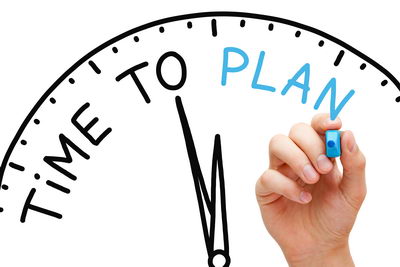EDGE Venues partners with Legends Global to expand access to standout UK venues
We have confirmed a new partnership with Legends Global, bringing our community of agency and corporate event professionals closer to some of the most unique,...

Meetings and conferences are vital to effective communication and a good experience is fundamental to your plans to connect both internally with your colleagues and externally with clients.
Any event that you hold will be a demonstration of how efficient your company is, and engagement is vital to driving attendance. We all know that events are not easy to plan or manage but in the competitive and time-poor environment that we work in it is essential to impress the participants.
So how do you achieve the desired outcome from your conference or meeting? Here are a few tips to help …
If you’ve held this event before, make sure that you incorporate the feedback, both good and bad. That’s not only from attendees, but also the speakers and staff. They will all give you advice to improve the next. Do a SWOT analysis and check that the information you are providing is relevant and new so that attendees learn something that’s made it worthwhile leaving their desks.
Who are you talking to? What have they achieved, what problems are they having and what do they want to get out of this event? What do they like and dislike?
This relates to the previous point about doing your homework, but you will also use the information to tailor the experience.
This isn’t easy when planning an event for a group of people. You can get the attendees involved before, during and afterwards by using tools such as surveys and polls. This is can valuable source of topic suggestions and will help with the agenda. At the event, ask a question to the audience and then discuss the answers to judge the feeling in the room.
Make the experience as easy as possible for the speakers who have agreed to help by giving their time and sharing their insights. Any pre-event surveys can highlight trends or subjects that they will cover in their presentations, which also makes sure that the audience gets the answers they want.
It might we worth finding an external expert on a particular topic who can add value. Or you might have someone who is a thought-leader within your organisation, who regularly publishes blogs, is active on social media and is highly regarded as a specialist in their field.

Preparation is essential, so share as much as you can with your team and also with the attendees beforehand. If anything changes then make sure that everyone knows immediately and has clear instructions about how to proceed. Onsite you can use the latest technology to deliver real-time notifications and dynamic alerts.
49% of people multitask by doing unrelated work during meetings and events. Make sure you keep everyone focused by delivering excellent content in an exciting way that really benefits the attendee. You want them to walk away knowing it was worth their while leaving the office to attend your event.
Every meeting planner wants to collect insightful feedback so make sure attendees can deliver it in an easy, convenient way. The technology tools available now can provide you with quick and easy surveys, delivered electronically and these will allow attendees time to share their opinions, save you time and help plan the next event.
Follow up after the event and respond to contributors so everyone knows that their attendance was worthwhile and keep the engagement going afterwards. If you can create a sense of community then that will take you forwards to the next event.
We all know that meetings, conferences and events are a great contributor to successful communication, but they’re not easy to plan or manage. Hopefully, you can use these tips to improve engagement and build long-lasting relationships with attendees.